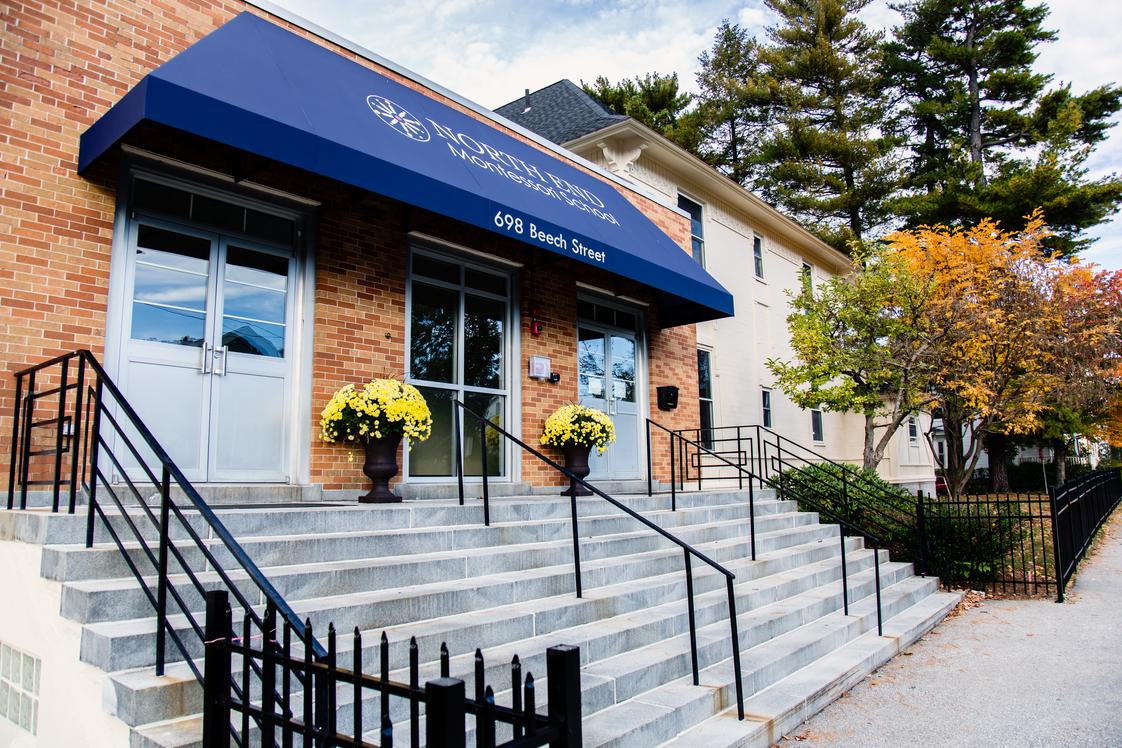The Montessori method is distinct because it is child-centric which encourages independence and creativity. It also fosters a lifelong passion for learning. This comprehensive guide explores the advantages of Montessori daycare, Montessori kindergarten, Montessori preschool, and Montessori elementary school, highlighting the role each stage plays in a child’s holistic development.

Montessori Daycare Inspiring independence from the start
Montessori daycare programs are designed to nurture independence and self-confidence in the youngest learners. These programs provide a secure, stimulating environment where children as young as infants and toddlers can play and learn at their individual pace. The Montessori classroom contains age-appropriate materials which promote motor skill development and exploration of sensory.
Teachers in Montessori daycares are facilitators, not traditional instructors. They guide children through their education. This approach helps children develop critical thinking skills and fosters a sense of autonomy. Montessori daycares include activities such as spooning beans, pouring water and buttoning clothes. All these activities aim to improve fine motor skills.
Montessori Kindergarten: Foundations for Lifelong Learning
The main focus of the Montessori kindergarten curriculum shifts slightly as children transition towards it. It is formal academic education, while encouraging independence and self-directed activities. The Montessori kindergarten program is diverse and full of content, including language academics, maths, culture studies and practical life skills and much more.
One of the primary components of Montessori kindergarten is the multi-age classroom in which children of various age groups learn together. This arrangement allows children of a younger age to learn from older peers and for older children to enhance their understanding by teaching concepts they have previously learned. This encourages children to improve their social skills and builds a sense of belonging in the classroom.
Montessori kindergarten is an engaging environment that focuses on real-world learning. Math, for instance, could be taught with manipulatives such as beads and rods, which help children grasp abstract concepts through physical interaction. The use of story telling, phonetic exercises and writing activities are all utilized to help develop language.
Montessori Preschool The Montessori Preschool: fostering exploration and curiosity
Montessori preschools build upon the foundations established in daycare and kindergarten, emphasizing curiosity, exploration, and a desire to learn. The preschool’s setting has been designed to be fun and educational. The curriculum and materials are tailored to cater to the stages of development of children aged between 3 and 6.
In Montessori schools children are given the liberty to select their programs and work according to their own schedule. This independence fosters intrinsic motivation, and creates a sense that they are responsible for their learning. The preschool program includes math, language, and cultural studies, as well as with life-related activities.
Practical life exercises, such as cooking or cleaning up, as well as gardening are the foundation of Montessori preschool education. These exercises are designed to teach children life skills as they develop their coordination, concentration and independence as well as other essential capabilities. Sensorial exercises, on the contrary, focus on improving the brain’s development as well as the five senses that are essential to human development.
Montessori Elementary School: Preparing Students for Academic Success and Beyond
Montessori elementary schools adhere to the philosophy of child-centered education and a greater focus on academic subjects, while taking care of the whole child. The curriculum is interconnected and integrated and allows children to recognize the interrelationships between various subjects of study.
Elementary students at a Montessori school engage in extensive studies, collaborative learning, and hands-on experiments. The classroom environment promotes the development of critical thinking and curiosity and the materials are designed so that they be able to accommodate the different interests and skills.
One of the main features of Montessori education is its emphasis on “cosmic education,” which helps children comprehend their role in the world, and the interconnectedness among all things. This method helps develop a sense of responsibility towards the environment and other people helping students become thoughtful, informed global citizens.
Conclusion Conclusion: The Montessori method, which includes early childhood education and daycare is a unique approach to support a child’s growth. Montessori education offers children the necessary tools and the mindset to ensure success in the future by encouraging the spirit of curiosity, independence and a passion for learning.
